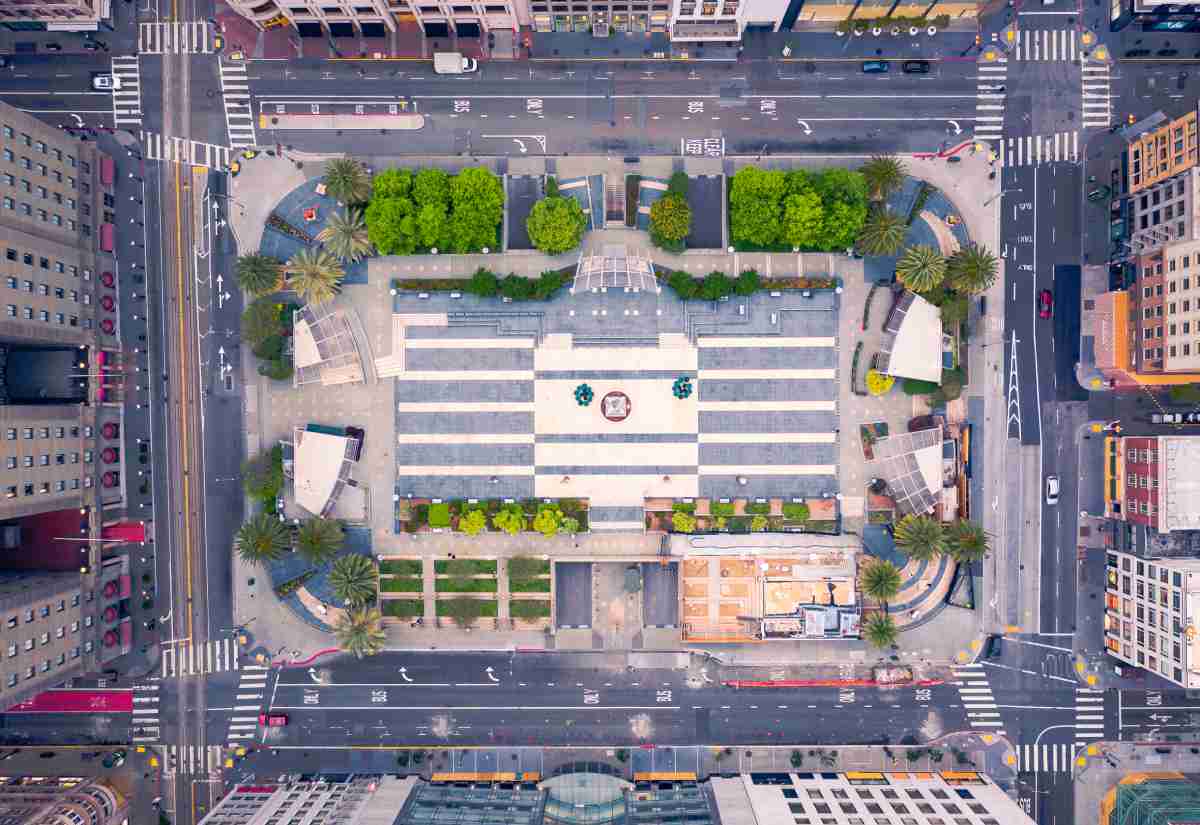From the loss of loved ones and economic hardships to the mental and emotional stress that can come from isolation, COVID-19 has dealt a devastating blow to the world. The full effect of this pandemic might not be fully understood until years after we’ve managed to get it completely under control. And while the news is often grim, there are a few stories from around the world that highlight the unexpected impact that COVID has had on the environment. More people are staying home and more factories are shutting their doors, cutting greenhouse gas emissions, and emptying crowded tourist destinations. It’s been called “a real-time experiment” that illustrates what the world would look like with fewer carbon emissions. Marshall Burke, professor of Earth System Science at Stanford University, told Today in an interview that while this is not the way we want to clean up our environment, it is an interesting look at what the world might be like if and when we reduce our reliance on fossil fuels. Here’s a quick look at a few of the changes that have been seen around the world while it was under lockdown.
You may have seen the news that the murky water in the canals of Venice, Italy, has run clear for the first time in decades. The lack of boat traffic in the waterways during the pandemic has allowed the sediment to sink without being stirred back up. People can see down to the very bottom of the canals in some places. While this doesn’t mean that the water is less polluted, the air certainly is cleaner as the emissions from water taxis and boats have decreased.
Upsides and downsides.
Remarkably clearer waters in Venice’s canals as a result of a dramatic fall in tourist numbers following Italy’s #coronavirus lockdown
? Andrea Pattaro pic.twitter.com/1Kee0Mgz8J
— AFP news agency (@AFP) March 19, 2020
Meanwhile, in Milan, Italy, NASA said air quality improved by 50 percent during their lockdown. Wuhan, China also saw a 30 percent improvement in air quality. This effect was just a temporary one, however. As countries end lockdowns, the levels of pollution from traffic and factories are now starting to return to what we perceive as normal levels.¹
Residents in Punjab, India received a surprise during their lockdown as the air quality in their city improved. They were able to see the Himalayan Mountain range 100 miles away for the first time in 30 years.²
The #COVID19Lockdown has cleaned the air over #Nepal and northern #India. So much so that for the first time in many years, Mt #Everest can be seen again from #Kathmandu Valley even though it is 200km away.
More breathtaking images by @AbhushanGautam: https://t.co/IqFZw39haC pic.twitter.com/ErTJa7kPJo
— Nepali Times (@NepaliTimes) May 15, 2020
Cleaner air isn’t the only unexpected effect of COVID lockdowns. Animals are reclaiming areas that were once heavily populated by tourists. Decreased traffic in Florida has made it easier for sea turtles to come to shore and lay their eggs. At Juno Beach researchers found nearly 200 more nests this year than the year before. As beaches start to open up, experts worry about the danger posed to the hatching turtles. The biggest issues include nests getting trampled or dug up and artificial lights confusing the hatchlings as they try to make their way to the ocean.³
Beaches around the world have seen a rising number of sea turtle nests as COVID-19 restrictions have temporarily kept humans away. Learn more here: https://t.co/YEwpskpJmF
— Animal Welfare Institute (@AWIOnline) July 17, 2020
On the flip side, some sea creatures actually seem to miss their human friends. Barnacles Cafe & Dolphin in Australia’s Tin Can Bay has reported that a pod of humpback dolphins has been bringing gifts of coral, sponges, and seaweed to the shore during the lockdown. It’s thought that they miss the free meals and interactions that they’d routinely get from their human visitors.4
In Australia, a pod of dolphins got used to swimming ashore, where people at the Barnacles Cafe would feed them.
Because of the lockdown, humans haven’t been coming.
So now, the dolphins have started bringing gifts from the ocean.
— Goodable (@Goodable) May 22, 2020
These changes aren’t permanent, but they demonstrate what it might be like to live in a more eco-friendly world. Some things, such as air quality, will quickly rebound to near pre-lockdown levels. However, there might be a few positive changes that will continue after this crisis is over. It’s predicted that more people will work from home and telecommute instead of travel for business. There’s also been a push to buy local products to reduce transportation costs and carbon emissions. Most importantly, there might be a permanent shift in our mindset. People are increasingly taking the time to get outside and enjoy the outdoors while other forms of entertainment remain closed. Another benefit is that more people are realizing what the world could be like with fewer carbon emissions. The seeds of change have been planted and now we all just have to help them grow.
Effects Show Even Years After COVID-19
As we’ve learned to navigate through the unprecedented challenges brought by COVID-19, it’s clear that amidst the chaos and uncertainty, unexpected silver linings have emerged. From Venice’s clear canals to improved air quality in Milan and Punjab, these glimpses of a cleaner, more vibrant world offer a glimpse of what’s possible when we prioritize environmental stewardship. While these changes may not be permanent, they serve as a powerful reminder of our interconnectedness with nature and the potential for positive transformation. As we move forward, let’s nurture these seeds of change and continue to embrace eco-friendly practices, from remote work to supporting local economies, fostering a brighter, more sustainable future for generations to come.
Read about the 8 ways to celebrate Earth Day this year! Explore eco-friendly activities that you can enjoy with your friends and family to make a positive impact on our planet.
¹”Nitrogen Dioxide Levels Rebound in China,” NASA Earth Observatory.
²”People in India can see the Himalayas for the first time in ‘decades,’ as the lockdown eases air pollution,” CNN Travel.
³”Beaches around the world may be empty, but conservationists question if sea turtles are truly thriving during lockdown,” Insider.
4 “Caretakers say dolphins at popular spot miss tourists and keep leaving ‘gifts’ on shore,” The Hill.



